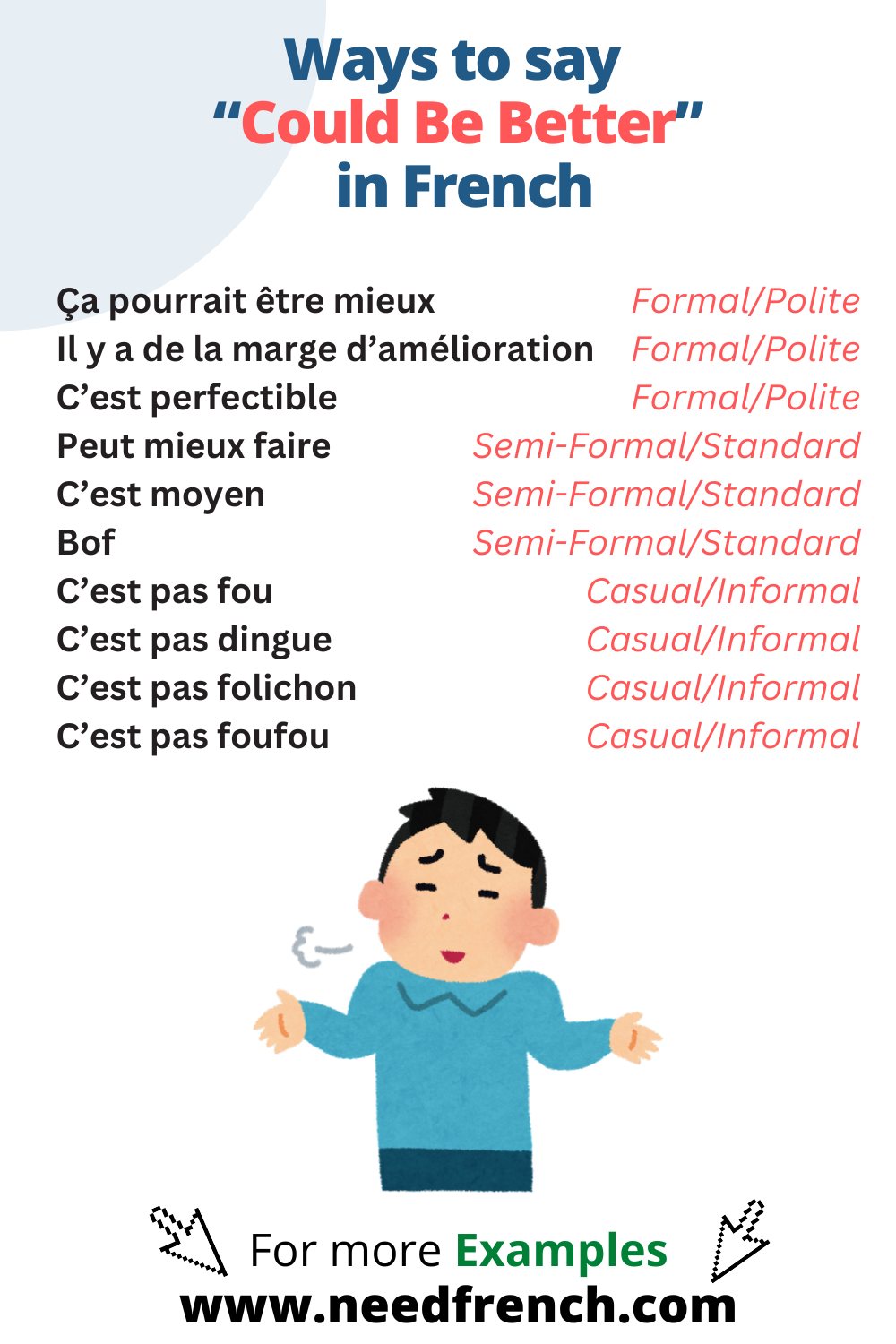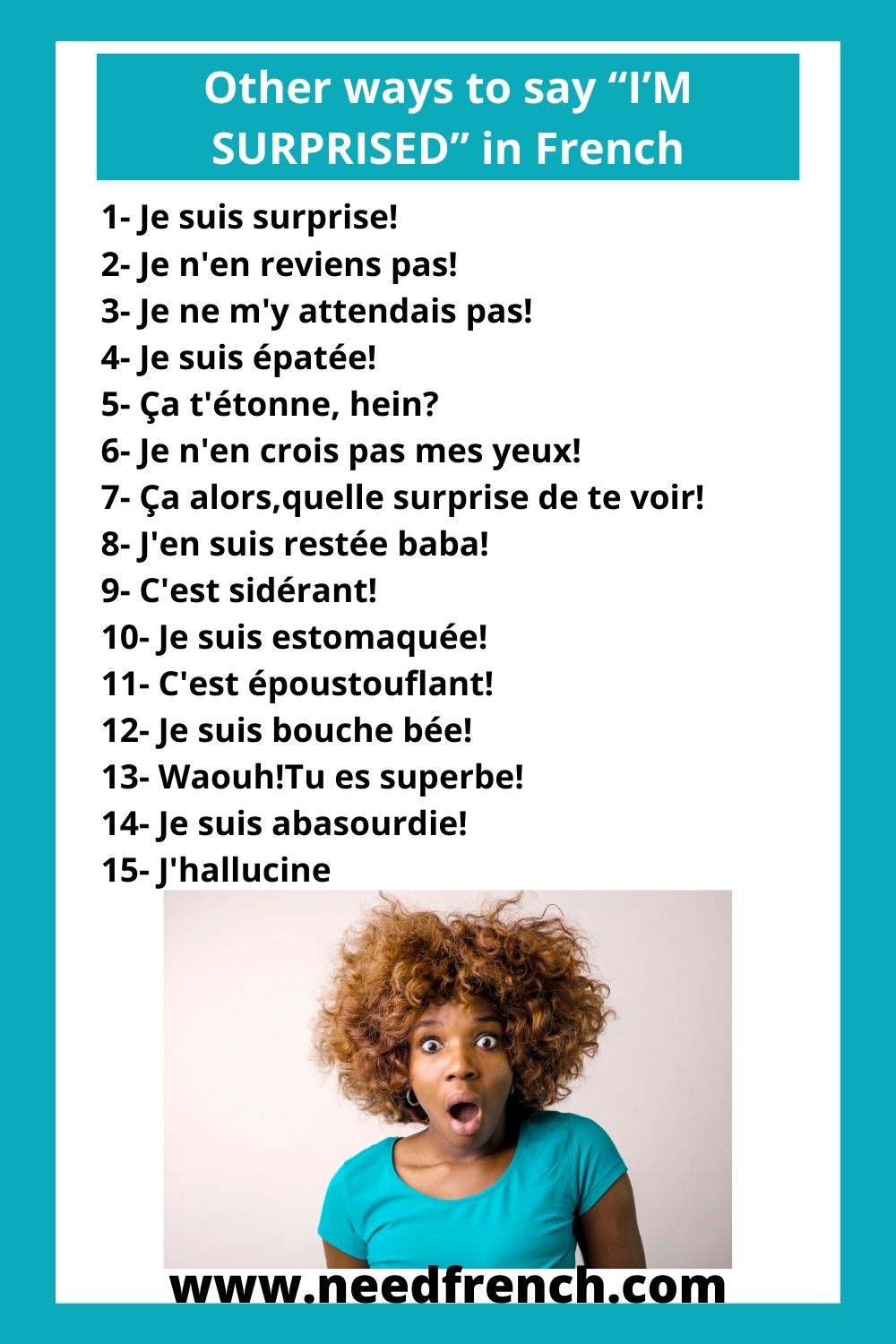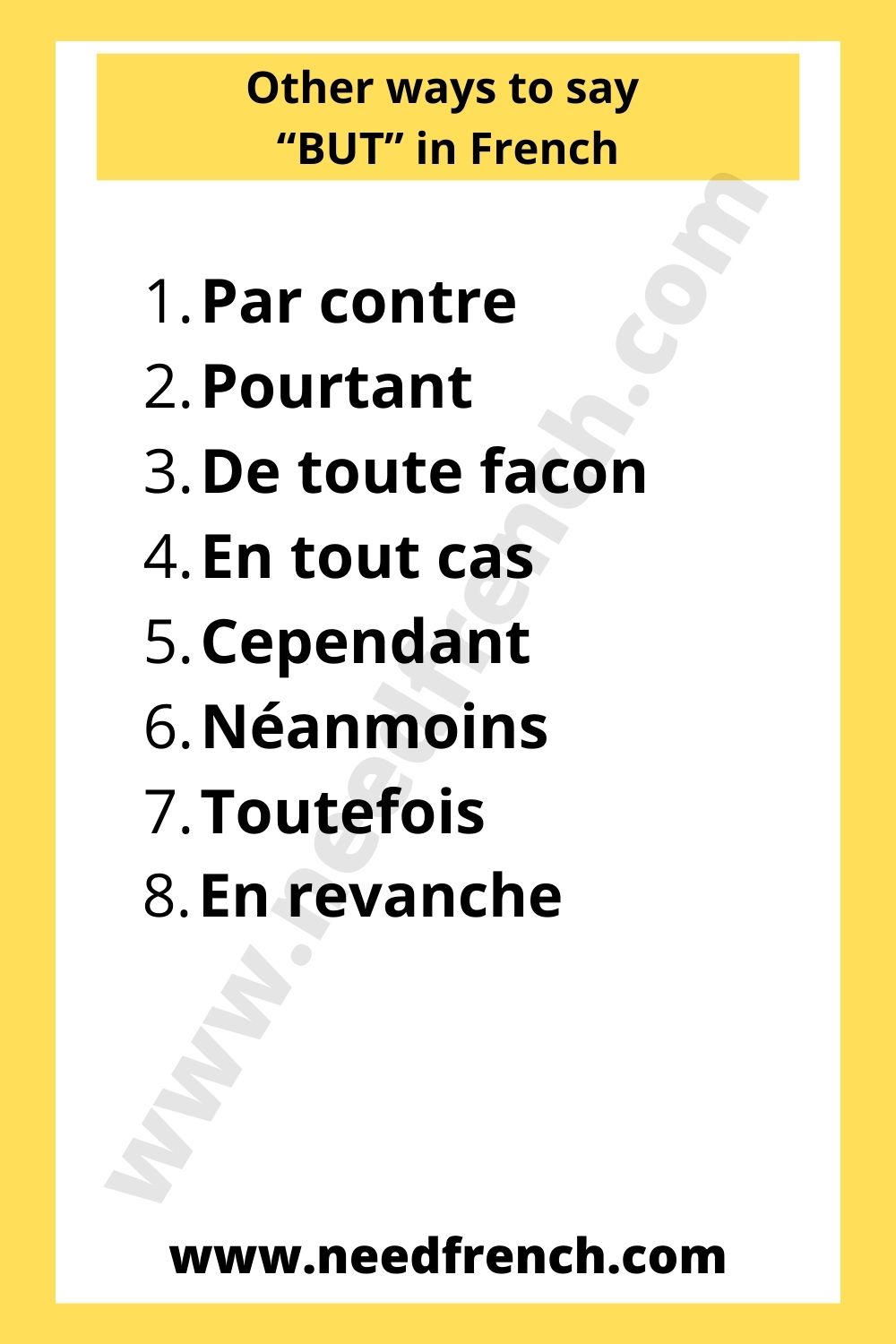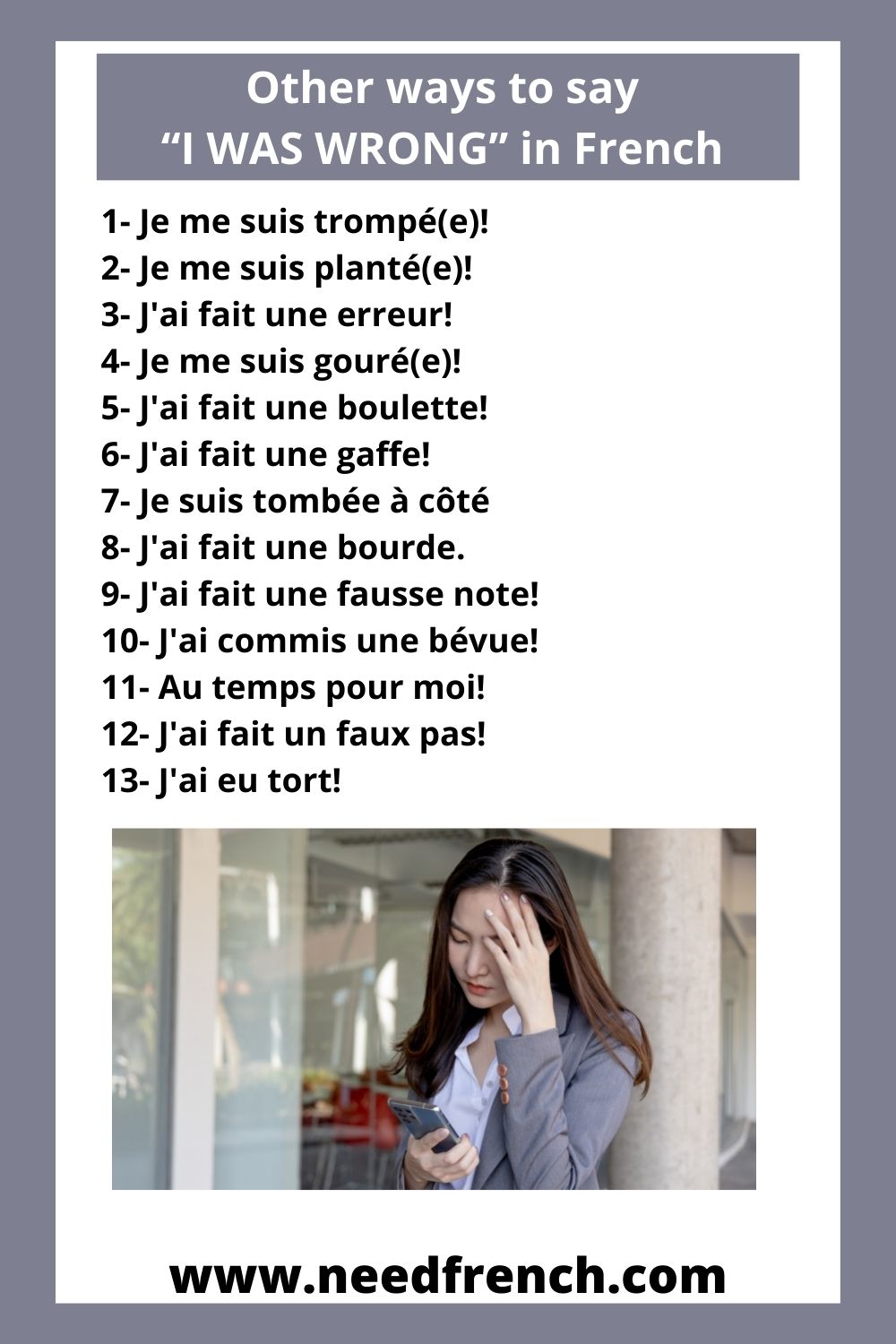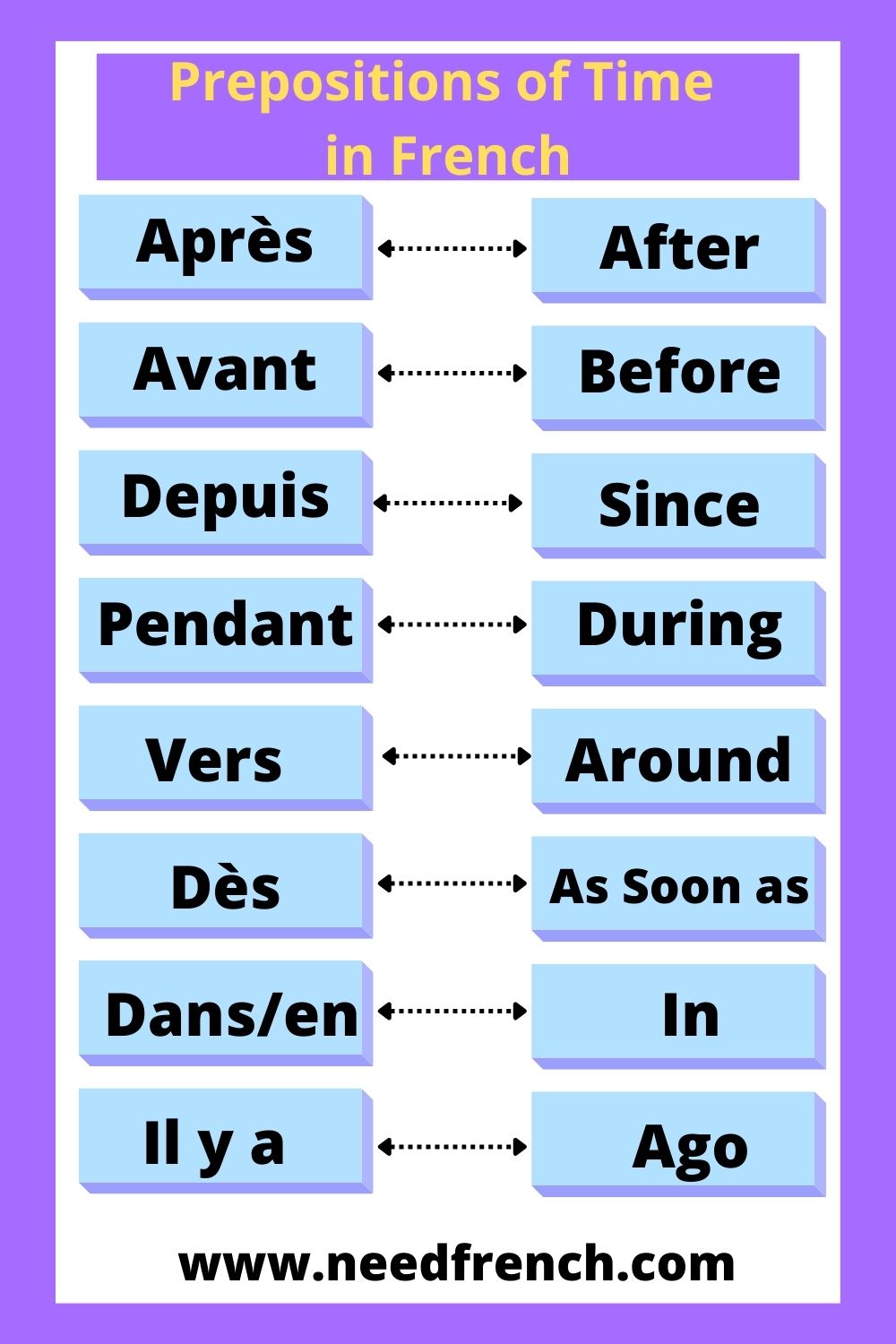Sometimes things aren’t great, but they’re not terrible either. French has many diplomatic ways to express mild disappointment or lukewarm approval, from polite criticism to casual indifference. This guide will help you express these subtle feelings appropriately.
Expressions by Formality Level
Formal/Polite
1. Ça pourrait être mieux
Pronunciation: /sa puʁɛ ɛtʁə mjø/ (sah poo-ray et-ruh myuh)
- Diplomatic, constructive criticism
- Appropriate in professional settings
- Example: “Le rapport est correct, mais ça pourrait être mieux.” (The report is okay, but it could be better.)
2. Il y a de la marge d’amélioration
Pronunciation: /il ja də la maʁʒ dameliɔʁasjɔ̃/ (eel yah duh lah marzh dah-may-lee-or-ah-see-on)
- Very diplomatic way to suggest improvement
- Professional/academic context
- Example: “Il y a de la marge d’amélioration dans ce projet.” (There’s room for improvement in this project.)
3. C’est perfectible
Pronunciation: /sɛ pɛʁfɛktibl/ (say pair-fek-tee-bluh)
- Means “it can be perfected”
- Gentle, constructive tone
- Example: “Votre présentation est perfectible.” (Your presentation can be improved.)
Semi-Formal/Standard
4. Peut mieux faire
Pronunciation: /pø mjø fɛʁ/ (puh myuh fair)
- Classic school report phrase
- Means “can do better”
- Example: “Son travail, peut mieux faire.” (His/her work – could do better.)
5. C’est moyen
Pronunciation: /sɛ mwajɛ̃/ (say moy-yan)
- Means “it’s average/mediocre”
- Neutral, commonly used
- Example: “Le film était moyen.” (The movie was so-so.)
6. Bof
Pronunciation: /bɔf/ (bof)
- Simple expression of indifference
- Means “meh” or “so-so”
- Example: “Comment c’était ? Bof…” (How was it? Meh…)
Casual/Informal
7. C’est pas fou
Pronunciation: /sɛ pa fu/ (say pah foo)
- Casual way to say “it’s not great”
- Common in everyday conversation
- Example: “Ce resto, c’est pas fou.” (This restaurant isn’t great.)
8. C’est pas dingue
Pronunciation: /sɛ pa dɛ̃g/ (say pah dang)
- Similar to “c’est pas fou”
- Means “it’s not amazing”
- Example: “Son nouveau single, c’est pas dingue.” (His/her new single isn’t amazing.)
9. C’est pas folichon
Pronunciation: /sɛ pa fɔliʃɔ̃/ (say pah foh-lee-shon)
- Slightly old-fashioned but still used
- Means “it’s not exciting”
- Example: “La soirée était pas folichon.” (The party wasn’t very exciting.)
10. C’est pas foufou
Pronunciation: /sɛ pa fufu/ (say pah foo-foo)
- Very casual, playful
- Similar meaning to “pas fou”
- Example: “Ton idée, c’est pas foufou.” (Your idea isn’t great.)
Remember: These expressions help you give feedback without being too harsh or too enthusiastic. They’re perfect for those “in-between” situations where something is neither great nor terrible!
